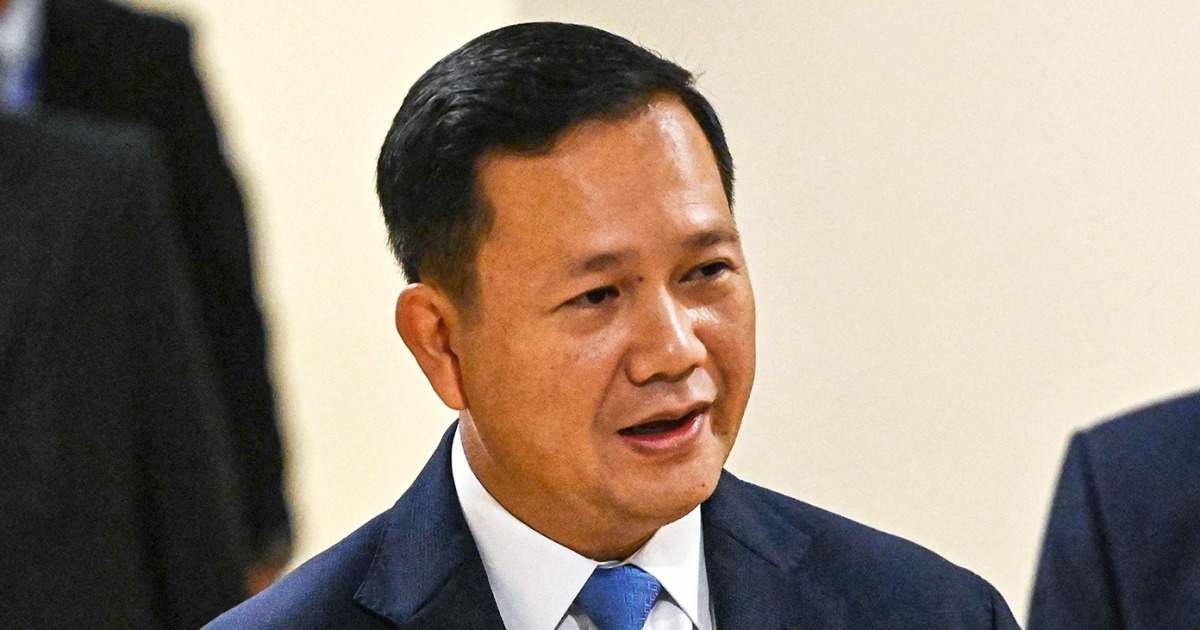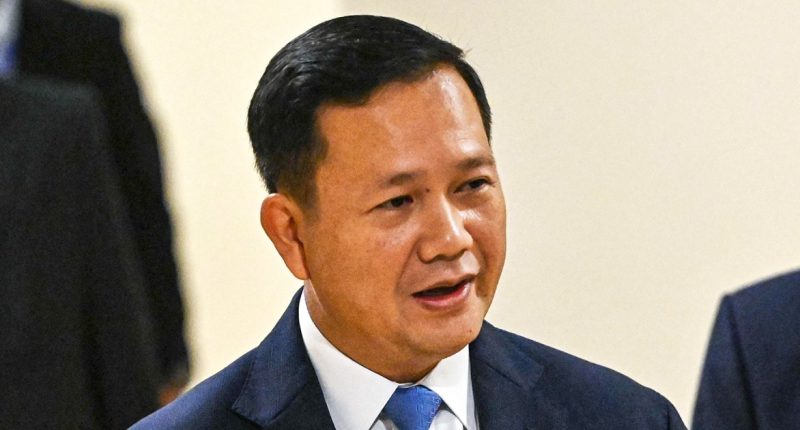
In a widely anticipated move, Hun Sen announced that Hun Manet, his oldest son, would succeed him as prime minister shortly after his Cambodian People’s Party won a landslide victory in July elections that were criticized by Western governments and rights groups as neither free nor fair because the main credible opposition party was barred from participating.
His Cabinet includes Tea Seiha, who will be replacing his father, Tea Banh, as minister of national defense, and Sar Sokha, who is replacing his father, Sar Kheng, as minister of the interior. Both are also to serve as deputy prime ministers.
“Hun Manet’s succession as prime minister of Cambodia is a two-penny farce that would be amusing if a country’s fate was not at stake,” said Sam Rainsy, a co-founder of the dissolved opposition Cambodia National Rescue Party who has been in self-imposed exile since 2016 to avoid prison for a defamation conviction along with a slew of other legal charges brought by the government.
“Lack of legitimacy is the automatic result of elections without risk,” Sam Rainsy said on X, formerly known as Twitter.
Hun Sen has progressively tightened his grip on power during his 38 years in office while also ushering in a free-market economy that raised the standards of living of many Cambodians.
At the same time, the gap between the rich and poor greatly widened under his leadership, deforestation spread at an alarming rate, and there was widespread land grabbing by his Cambodian allies and foreign investors.
He has also moved Cambodia politically steadily closer to China, which is currently involved in broadly expanding Cambodia’s Ream Naval Base. Washington worries the expansion could give Beijing a strategically important military outpost on the Gulf of Thailand.
Even though he has relinquished the prime minister’s job, Hun Sen, 71, is expected to retain a large amount of control as his party’s president and president of the Senate.
Hun Sen started his political life as a middle-ranking commander in the radical communist Khmer Rouge, which was blamed for the deaths of an estimated 1.7 million Cambodians from starvation, illness and killings in the 1970s, before defecting to Vietnam.
When Vietnam ousted the Khmer Rouge from power in 1979, Hun Sen quickly became a senior member of the new Cambodian government installed by Vietnam and eventually helped bring an end to three decades of civil war.
By contrast, Hun Manet, like many of the incoming ministers, comes from a life of privilege and was educated in the West. He has a bachelor’s degree from the United States Military Academy West Point, a master’s degree from New York University and a doctorate from Bristol University in Britain, all in economics.
While the new government might not make drastic changes in policy, it is likely to set a different tone of political discourse, Norén-Nilsson said.
“This generation wants to relate differently to society at large than their parents’ generation of revolutionary fighters,” she said. “They want to be associated with positive political messages and to move away from and, if possible, even eliminate the sense of menace and threat of violence over time.”
Source: | This article originally belongs to Nbcnews.com










